Paul: A Biography
£12.70£14.20 (-11%)
“A biography of St Paul by his greatest living interpreter: it is a dream come true.” Tom Holland
This compelling reconstruction of the life and thought of St Paul paints a vivid picture of the Roman world in which he preached his revolutionary message. It explains the significance of Paul’s lasting impact on both the Church and the world.
Elegantly written by arguably the most influential Pauline scholar in the world today – Paul a Biography is Tom Wright at his very best.
This gripping historical life story will appeal to both believers and historians, painting a picture that provides insight and new understanding of both the man Paul and the world in which he lived.
Read more
Additional information
| Publisher | SPCK Publishing (18 Feb. 2020) |
|---|---|
| Language | English |
| Paperback | 482 pages |
| ISBN-10 | 9780281078769 |
| ISBN-13 | 978-0281078769 |
| Dimensions | 13.97 x 2.46 x 21.59 cm |

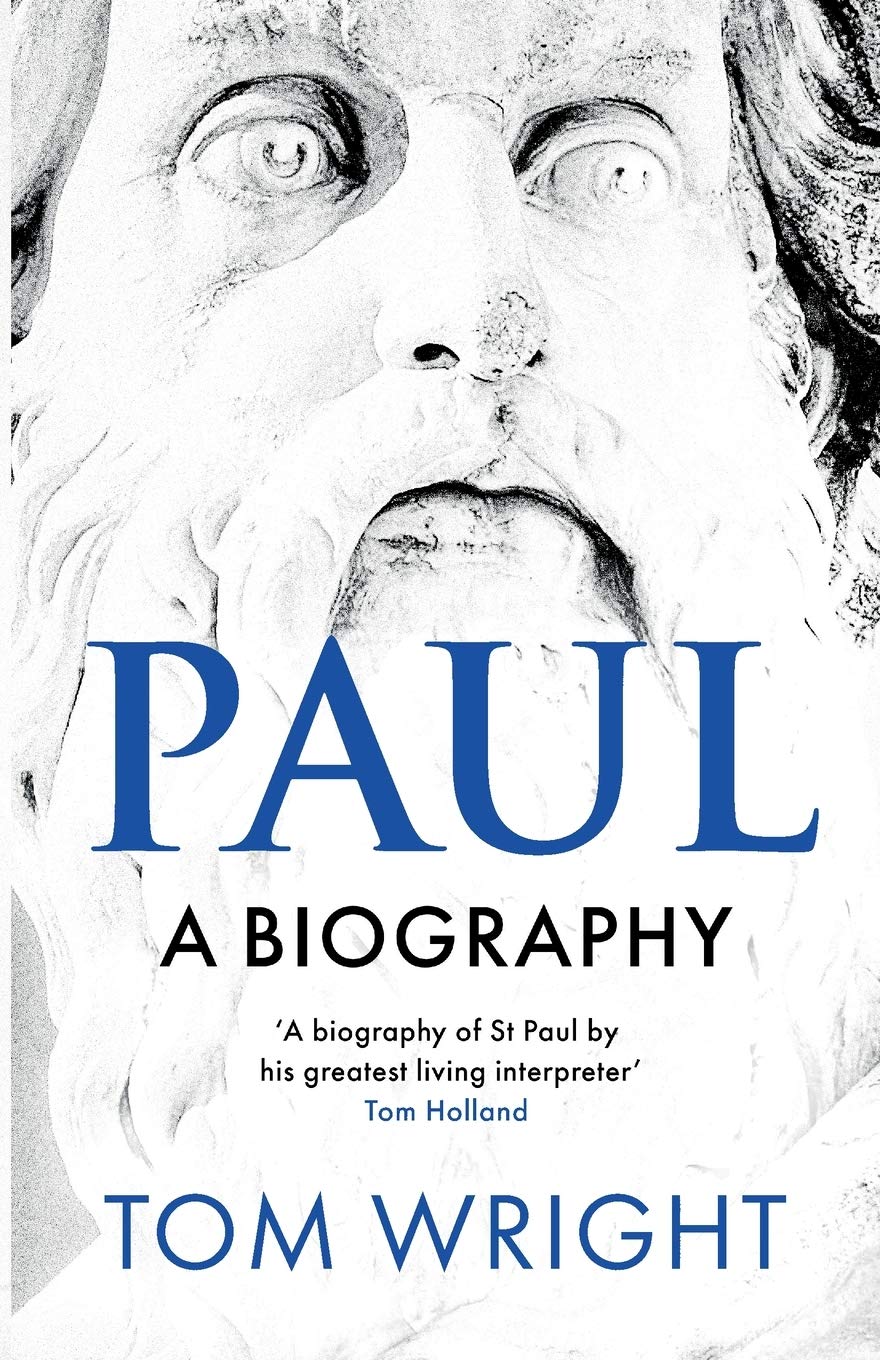
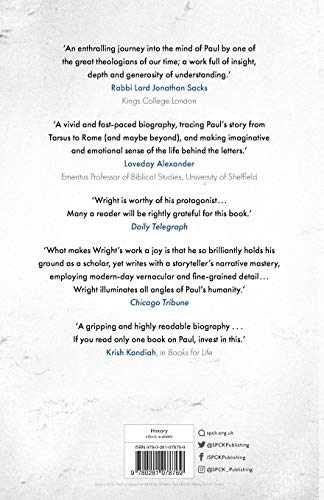
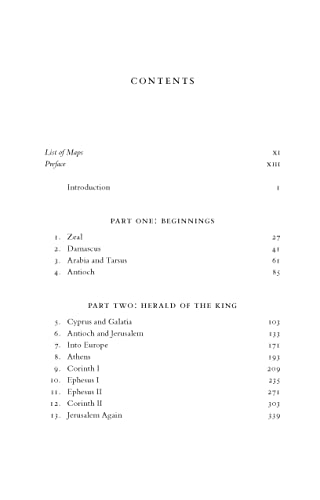
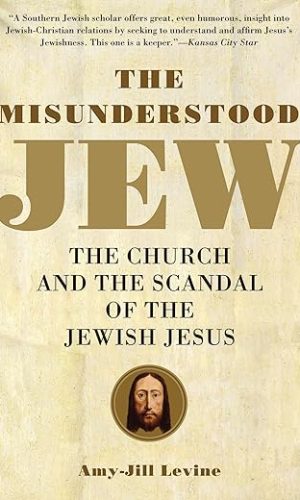
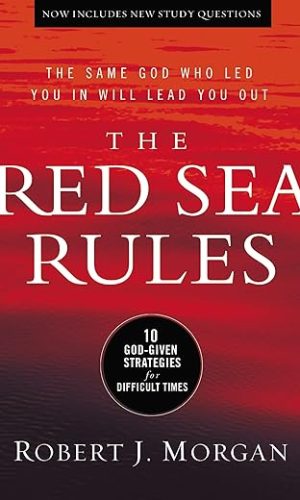




by jeremy marshall
This is a superb new book which comes from the man generally acknowledged to be the leading living New Testament scholar, Tom Wright. It’s in many ways a culmination of his vast life’s work in theology, much of which looks at Paul’s writings. Devotees of Wright will recognise many of his previous themes. Now however he has recast his great theological scholarship on the Pauline epistles into a biographical form. It is more accessible and somewhat less lengthy than the more specialist works and designed for the general reader, a category I certainly include myself in, rather than the specialist theologian. It is still pretty long (500 pages plus) and in places it is a little repetitive: the editing of a second edition could be enhanced.
Where Wright succeeds brilliantly is a picture of Paul as a human being. We can tend to see him as primarily a theologian, even an ivory tower dweller, but the book brings out his much broader background – a businessman, a student, a traveller, a Roman citizen, a teacher. A man of energy, drive and great courage, who could at times argues Wright, also be bossy, experience depression and need affirmation from his congregations. Perhaps most importantly he places Paul at the intersection of Greek, Roman and Jewish life which enables us to see Paul much more as his contemporaries would have seen him. It is a world which is profoundly different to ours for truly “the past is a different country they do things differently there” and Wright is excellent at bringing that out. For example “ today religion…designates a detached area of life, a kind of private hobby for those who like that kind of thing, separated by definition from politics and public life, from science and technology. In Paul’s day “religion” meant almost exactly the opposite”.
Wright, as you would expect from someone of his depth of scholarship is brilliant at looking at many aspects of Paul’s life and times that we might overlook. He points out for example that in Athens Paul was not in a university debating chamber but something much nearer to a courtroom and that he was dangerously close to the same charge that had led to the death of Socrates. Want to know how Paul probably proved he was a Roman citizen? Or what being a tent maker was really like as a job? Did you know that the debate about who was a Jew and who not, was key in part because Jews enjoyed an exemption from the general demand to worship Caesar and as result were looked on as virtually atheists? He is also very insightful about Paul the embarrassed fund raiser or Paul the opinionated shipping expert – this book humanizes Paul, brings him down from some theological Mount Olympus.
Of the three great systems of thought listed above it is Paul the Jew that comes out most strongly. Wright makes a whole series of suggestions as to OT passages that inspired Paul – Ezekiel’s vision of the heavenly throne-chariot on the road to Damascus, for exampole. By stressing the Jewishness of Paul he underlines the errors of the c19th German liberals who sought to do the exact opposite – to lever Paul out of his Jewish background. This Damascus road experience was hardly a religious conversion in the modern sense, argues Wright – “not for one second did Paul cease to believe in the one God of Abraham, Isaac and Jacob…what drove him forward was the belief that Israel’s God has done what he always said he would….that Temple and Torah themselves were not the ultimate realities but instead glorious signposts pointing forward…to Jesus”. And that additionally all humans and not just Jews could be set free to worship the one God.
And what was Paul pointing to about Jesus? Wright is surely right when he says that Paul wasn’t telling people how to live or how to get to heaven but that the crucified Jesus was the Messiah, the Son of God. On the issue of what faith in the Messiah means – a burning one if you follow the ‘new perspective on Paul ‘ debate, if you’ve never heard of it don’t worry – Wright seems to hedge his bets. He asks himself the question “ is it justification by loyalty?” and seems as far as I can tell to answer “on balance, no”. He says the Greek word ‘pistis’ which we translate into English as ‘faith’ “also has overtones of faithfulness…and loyalty….that as well as belief there is the commitment that accompanies genuine belief that Jesus is the worlds sovereign. ” This sounds to me a sensible place to rest but does leave a number of loose threads which minds of greater theological heft than mine will no doubt seek to untangle further.
My only caveat is that Tom Wright in places seems to love to set up and then knock down evangelical straw men. Just to take a few examples – is Western Christianity really like Plutarch being about
“leaving the wicked realm of space and time and matter to find a way to heaven from which pure souls have been temporarily exiled?” Are there really Christians who think being a Christian is 100% individualistic and zero about being part of a community? Do some Christians really think “the gospel is all about inner feelings and not at all about outward actions?” And for the early Christians was what happened to people after death “unimportant, a mere interim”?
So while there are occasional axes being ground this should not detract from what is a brilliant book. Like all Wright’s writing one might not agree with everything but he certainly makes you think and strongly defends many orthodox positions, not least that the epistles were all written by the man himself. In fact he skillfully traces how he thinks Paul’s circumstances and chronology – which he adapts somewhat to include an Ephesian imprisonment – shaped each of the books. The only ones he struggles to fit into his scheme are the Pastorals.
Wright deliberately avoids any application as to what Paul might have made of the church today -hopefully this might be his next book! This books succeeds because it humanizes Paul, explains his contract, even his inner thought patterns. The result is that we again realize that Paul, like all the Bible writers, was a real person pointing us to a real God.
by CW
Tom Wright is generally regarded as one of the world’s leading ancient historians and New Testament scholars. Fascinating book.
by NOTW
I enjoyed the book but Tom’s doctrine is clearly not one of a man who thinks that the Word of God is infallible, written by the Holy Spirit and God breathed. He thinks Paul wrote the Epistles of his own volition and doesn’t see the Spirit at work in Paul’s letters. God wrote the Bible and the NT. Not Paul.
The Bible is not alive to Tom, waiting to fulfill hundreds more prophecies and telling us the future before it happens. Everything has happened in the past and “the end of the world” prophesied by the prophets was simply the end of Jerusalem. This is a dangerous error that Peter warns us about in 2 Peter 3, when he tells us that, at the end, people will not be believing that God will destroy the world like he did with the flood. The same type of destruction is kept in store by the same word. Once by water and once by fire. That is God’s plan. He will burn sinners out of the land before the Millennial Kingdom. Be sure of it. Tom also suggests that the idea of “heaven up there” is not the way the Jews believed and not how we should either. That is a nonsense. Where did Elijah go to? Where is God now? Where did Jesus say He was going to (John 14:2-3) prepare a place for us? Why did Jesus ask for us to be there with Him (John 17:24) in His Father’s house? Scripture twisting, spiritualising and allegorising are always needed to say something other than what Jesus clearly says so easily that a child could understand.
Tom is clearly an amillennialist who also poo-poos the rapture of the Church and attributes it to fanciful myth. He does not recognise Israel and the return of the Jews to their land as God’s living miracle in our day and age. When Jesus said “This generation shall not pass”, Tom thinks Jesus was talking about the current generation and not the one when the fig tree (Israel), which Jesus cursed, returns i.e. Our generation! Paul warns us in Romans 11:25 not to be ignorant of the mystery of Israel. Tom is ignorant of the mystery of Israel, unfortunately, along with the vast majority of the Churches of today. That’s why they have no idea about Gods timeline which we are on. We were given a more sure word of prophecy and the wise virgins are waiting when the door is opened. That door is going to be opened very soon indeed. The world and all the works therein will be burned up. Believe this. The Bible warns us that when they divide Jerusalem and break the everlasting covenant then God’s judgement will come – Isaiah 24. That day is in view for anybody who is watching Israel.
I enjoyed the book, it is a scholarly work in worldly terms and describes the environment well. It lays out the movements and the travels of Paul very well. However, I won’t be buying the rest of his material as I consider his doctrine consisting of major errors in regards to that which I have mentioned. Perhaps not salvific but enough for me to steer clear. Tom, if you’re reading this, wake up my friend. The Bible is coming alive in Israel!